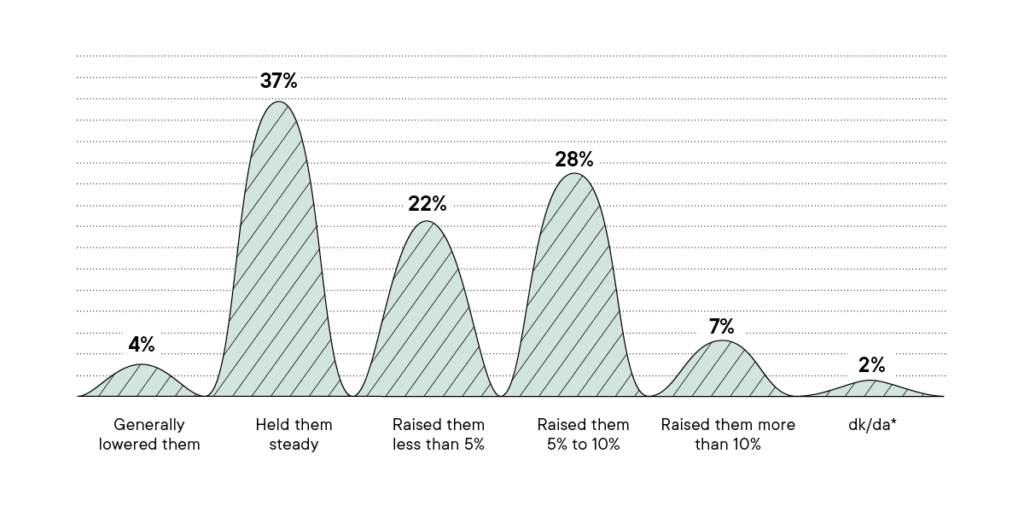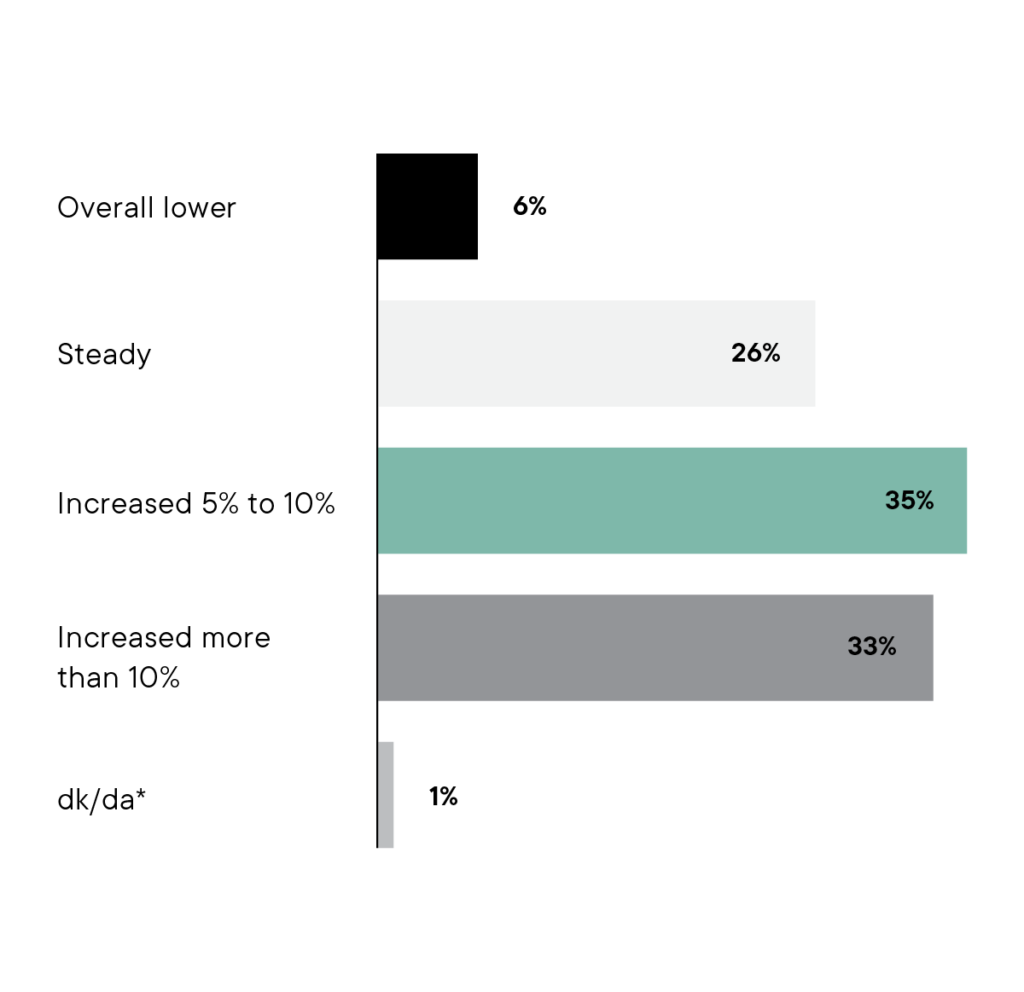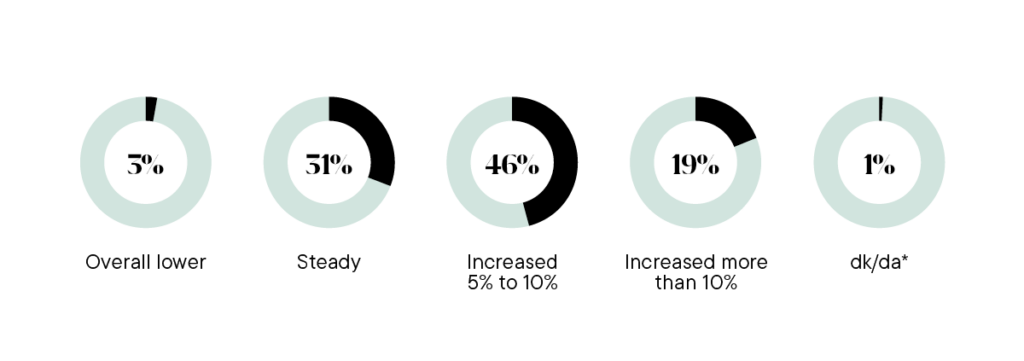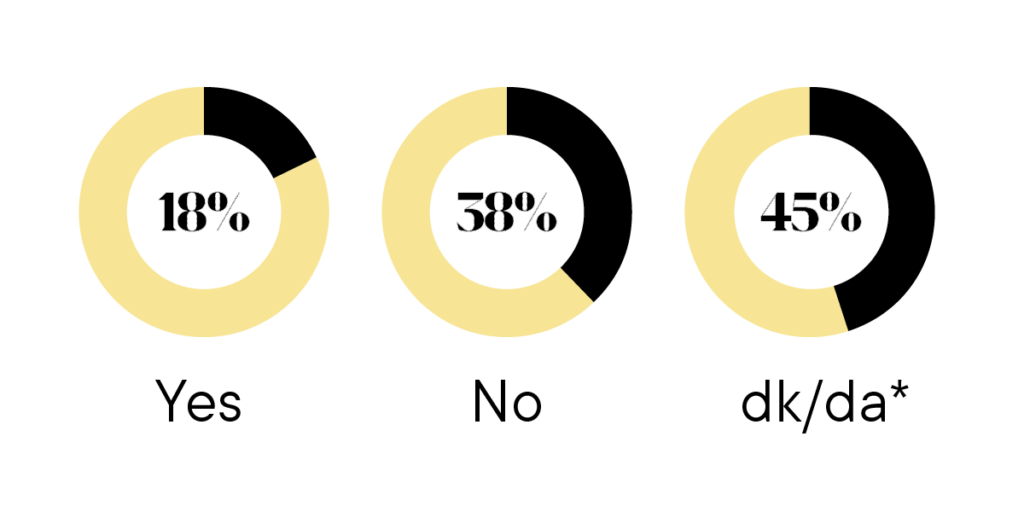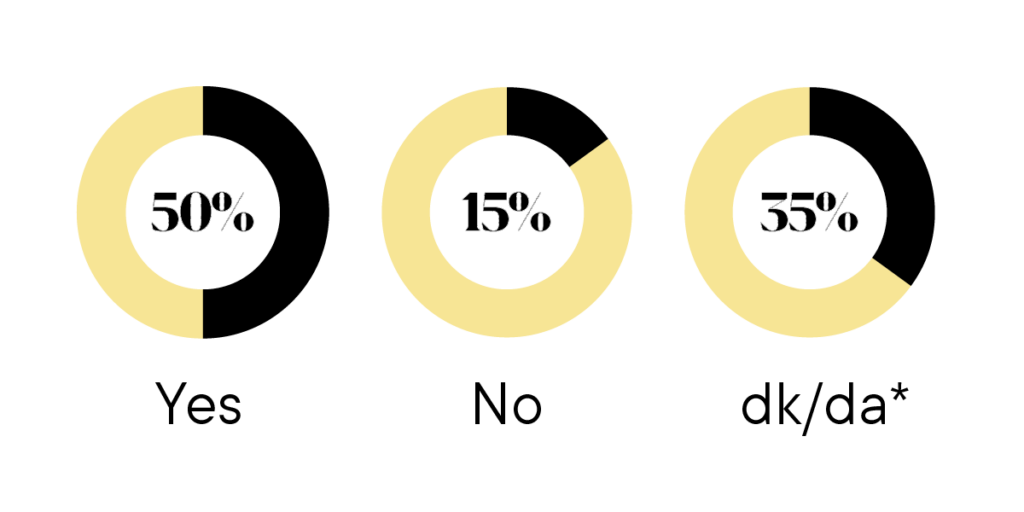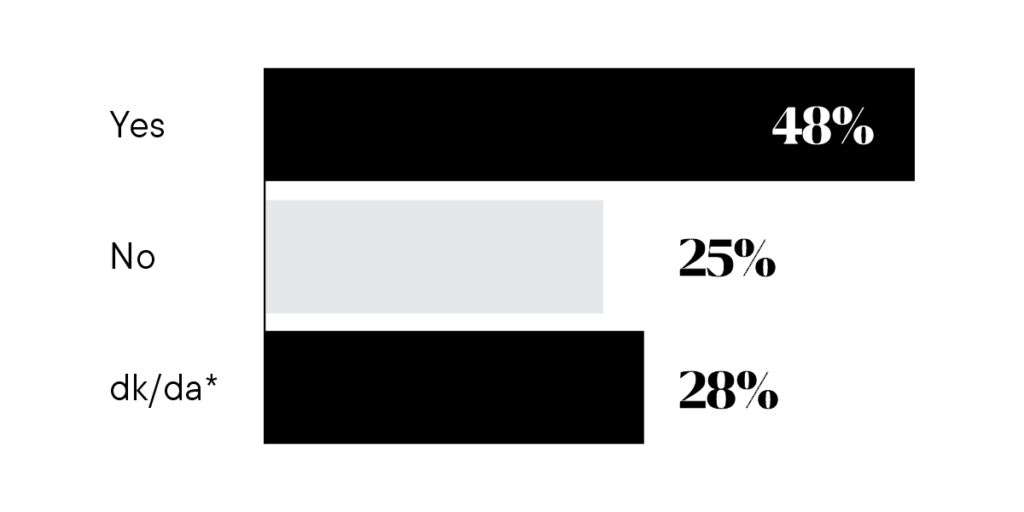How Are Hawai‘i Companies Responding to Inflation and ESG/DEI Demands?
Our biannual BOSS Survey finds 57% of companies raised prices last year. And a surprise: ESG and DEI policies are not especially popular.

Wages and Salary
Respondents were asked which of the following best mirrored how wages and salaries were handled by their business over the past year
Overall Expenses
Next, respondents were asked which of the following best described overall expenses at their business over the past year.
Cost Cutting
The business leaders were asked which of these best described any cost-cutting measures they took over the past year. They were allowed to choose more than one option. Here are the answers of the 37% of business representatives who said their businesses took one or more cost-cutting measures.
Company Pricing
Each business respondent was asked which of the following best mirrored how their company’s pricing model was handled during the past year.
How Did You Respond to Inflation?
Each respondent in both surveys – business representatives and the general public – was presented with six options and asked to select all that describe their personal response to inflation and higher interest rates.
Among the general public, people in these groups took more actions to counter the effects of inflation: women, those without a college degree, less affluent respondents, Native Hawaiians and renters.
Impact of the $14 Minimum Wage
Each respondent in the BOSS Survey of business representatives was told: The state’s minimum wage will rise to $14 an hour on Jan. 1, 2024. They were then asked which of these scenarios best described how you think your business will be impacted.
Seventy-eight percent of businesses in the construction sector predicted no impact, compared with 64% for all other businesses.
Methodology for BOSS Survey and 808 Poll
Hawaii Business Magazine’s BOSS stands for Business Outlook and Sentiment Survey. This survey was conducted by Anthology Research using a company listing purchased from a third-party business sample provider as well as Hawaii Business Magazine’s Top 250 list and classified Yellow Pages listings.
The sample of companies was stratified based on numbers of employees. Businesses with one to nine employees were designated as “very small” and those with 10 to 49 employees were designated as “small.” Medium-sized firms were those with 50 to 99 employees while companies with 100 or more employees were classified as “large.”
A total of 408 random interviews on the four biggest islands were conducted from March 21 to April 27, 2023. The data was weighted to reflect the proper proportions of each company segment based on number of employees as reported by the Hawai‘i Department of Labor. A sample of this size has a margin of error of 4.85 percentage points with a 95% level of confidence.
A secondary goal was to complete interviews with about 100 businesses that derive relatively significant proportions of their revenues from the construction industry. A total of 92 were surveyed in this segment.
Anthology Research also conducted the 808 Poll on behalf of Hawaii Business Magazine. In this online study of the general public, respondents were screened to ensure they were full-time residents of Hawai‘i. A total of 404 surveys were completed between March 3 and March 8, 2023. The margin of error for a sample of this size is 4.88 percentage points with a 95% confidence level.
The sample for the study was provided by third-party online sample providers, augmented by Anthology Research’s proprietary panel of Hawai‘i residents who have opted to take part in research studies.
The questions in both studies were developed by Hawaii Business Magazine and Anthology Research. The data was weighted to reflect population estimates of adults 18 and older segmented by the major ethnic groups in the Islands.
ESG and Your Company
Each business representative was presented with this statement: ESG stands for environmental, social and governance and is being used as a framework by some organizations to help govern their strategies on environmental and social issues, and how the organization and its leaders operate.
They were then asked which of these options best mirrored their company’s stance on ESG.
O‘ahu respondents (13%) were statistically more likely to say ESG policies were “misguided, counterproductive or unnecessary” than their Neighbor Island counterparts (5%).
In the 808 Poll, respondents who are employed were given the same statement and asked if their employer had an ESG policy
Then they were asked if all businesses should have an ESG policy.
Workers with a college degree (19%) were more than twice as likely to reject such policies as workers without a college degree (8%).
DEI and Your Company
In the BOSS Survey, each business representative was presented with the following statement:
DEI stands for diversity, equity and inclusion and is used to describe an organization’s policies and programs that promote the representation and participation of different groups of individuals, including people of various ages, races and ethnicities, abilities and disabilities, genders, religions, cultures and sexual orientations.
They were then asked which option best mirrored their company’s stance.
Each of the working respondents in the 808 Poll of the general public was presented with the same DEI statement. They were then asked if the business that employs them has a DEI policy.
Among people living in households with annual incomes of more than $100,000, 63% say their employer has DEI policies. Among workers who live in households with incomes below $50,000, just 35% work for companies with DEI policies.
They were then asked if all businesses should have a DEI policy.
Support for DEI policies at all companies is more likely among working people born and raised in Hawai‘i (72%); this falls to 60% amongst transplants.
Personal Views on Housing
Respondents in both surveys were told of these five policies and asked to select all that they personally feel state and local governments should follow to increase the supply of affordable and workforce housing in Hawai‘i.
In the BOSS Survey, those business representatives whose companies operate in the construction industry (50%) were statistically less likely to support looser zoning rules than were those who work for companies outside of this sector (63%). Conversely, businesses in the construction industry (85%) were statistically more likely to support subsidies, loans and tax incentives to builders than were those who work for firms outside of this sector (74%).
Read other parts of this BOSS Survey
Part 1: Is a Recession Coming? Here’s What Hawai‘i’s Business Leaders Say.
Part 3: Hawai‘i Construction Companies Say Revenues and Profits Are Up
